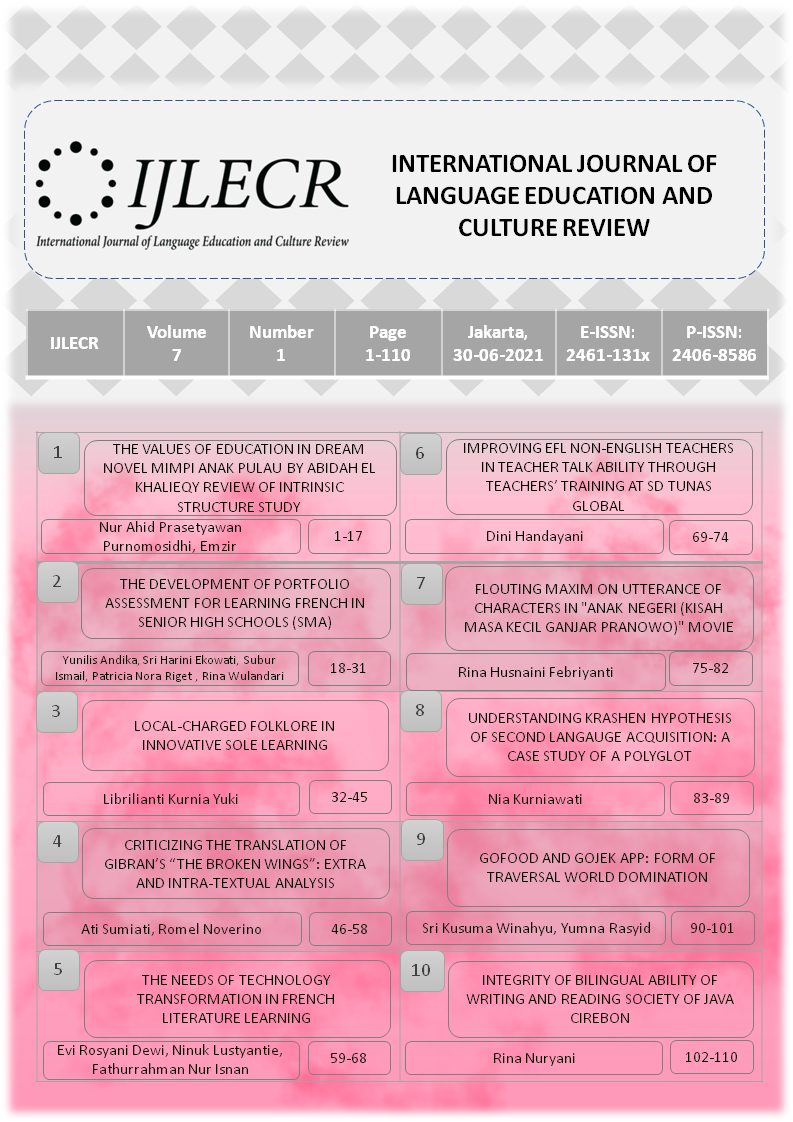UNDERSTANDING KRASHEN HYPOTHESIS OF SECOND LANGAUGE ACQUISITION: A CASE STUDY OF A POLYGLOT
DOI:
https://doi.org/10.21009/IJLECR.071.08Keywords:
krashen hypothesis, acquisition versus learning, affective filter, natural order, SLA, polygotAbstract
This research focuses on a case of a polyglot. The objectives of the study were to describe how a plyglot acquires the languages related to three of Krashen Hypothesis regarding the acquisition vs learning, affective filter, and natural order hypothesis. The subject of this study was a an English teacher who is able to speak many foreign languages or polyglot. The instruments used in the study were observation, an interview and questionnaire. The findings showed that the way he gained all the foreign languages are acquisition in natural setting. In terms of affective filter hypothesis, the result revealed that the affective variables played a facilitative role in her SLA. In this case, the subject showed good characteristics of language learner, such as good langauge aptitude, high motivation, and cognitive and affective factors. As for the natural order hypothesis, she found it easy to learn new language, since it was relatively similar to her previous learned languages in term of grammar and structure. However, it is suggested to explore the other two Krashen hypothesis to complete the findings with more samples to get deeper understanding on polyglot phenomena.








